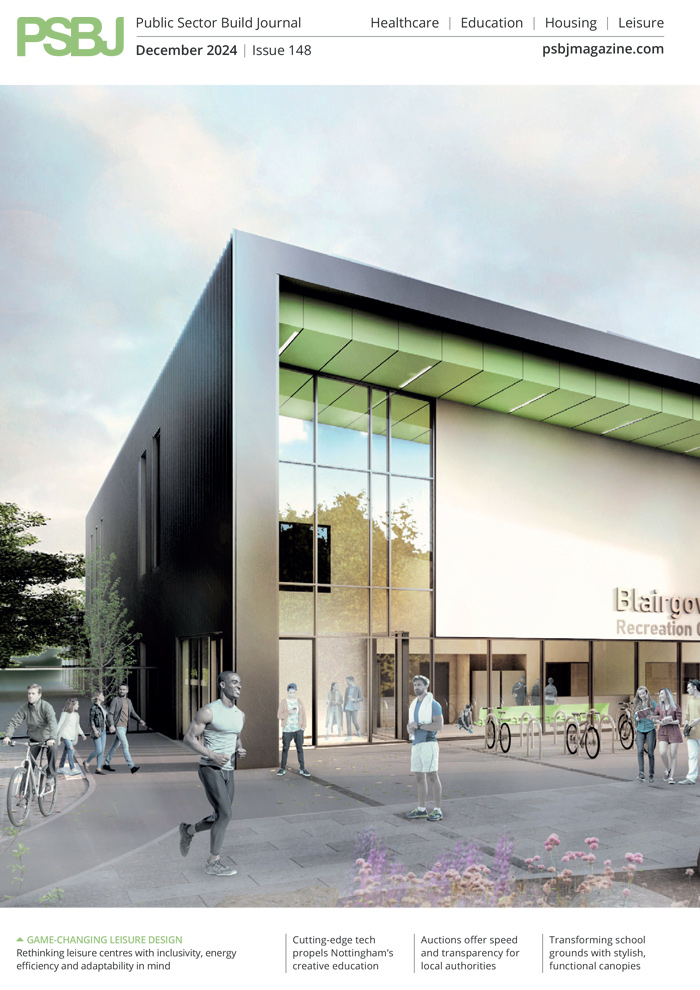Mark Hardy, Chair of the Association of Play Industries (API), explores why public playgrounds are so crucial in helping children recover from the effects of lockdown. With numbers already in steep decline, it is now more important than ever that playgrounds receive adequate funding.
Association of Play Industries (API)
Lockdown sparked a renewed appreciation of our shared public spaces: community playgrounds, parks and outdoor play areas are vital to the nation’s health. With one in eight UK households without a garden, millions of children were effectively under house arrest for months, with the potential for catastrophic effects on their physical and mental health.
Playgrounds have been in decline for years. However, even before lockdown, public play provision has suffered years of chronic under-funding, with the number of playground closures going into freefall. Using Freedom of Information Act requests, the API asked local authorities in 2016 and again in 2018 for updates on their playground provision and the situation is one of continued decline:
• By 2020/21 there will have been a decrease in spend on play facilities of 44% since 2017/18
• There will be a decrease in spend on playgrounds of over £13m each year on average across England
• Local authorities estimate a decrease in their spending on playgrounds of £25m by 2021.
Lockdown has, therefore, exacerbated an already alarming picture. There is increasing evidence that local authority budgets for public playgrounds will be slashed even further in 2020/21 as they struggle to reconcile the unprecedented demands being placed upon them.
Playgrounds and childhood obesity
Nevertheless, children’s outdoor play continues to be essential for their normal development. Without significant investment in playgrounds, many children will not have outdoor play spaces to mitigate the impact of lockdown. An already burgeoning childhood obesity epidemic has been intensified by recent events.
A pre-lockdown API survey of 1100 parents through Mumsnet showed that 72% of parents of children with health issues, such as obesity, said that the lack of outdoor play facilities in their area has played a role in their children’s problems and 90% of parents without a local playground said that having access would make their child play outside more.
The Prime Minister has declared a ‘much more interventionist’ approach to obesity in the fight against coronavirus. With mounting evidence that obesity increases the risks from Covid-19, the need to address the escalating inactivity epidemic becomes even more urgent.
Research by Sport England found that just one in five children under 16 have been doing the recommended hour or more a day during lockdown. And with excessive snacking and increased screen dependency, fears that lockdown will have exacerbated the obesity crisis seem well-founded. Playgrounds provide vital opportunities for children to get outdoors and active to burn off excess calories.
Children’s mental health
Leading children’s organisations report an upsurge in mental health difficulties during lockdown, and again, an already worrying situation has been made worse. The full effect remains to be seen, but the months spent alone, indoors, sedentary and screen-dependent will have consequences.
In our survey (carried out pre-lockdown), a quarter of parents of children with mental health problems said that the lack of local play areas has played a role in their children’s difficulties.
Sleep problems were similarly affected, with a quarter of parents saying that the lack of accessible outdoor play areas has had an impact on their children’s sleep difficulties.
Social skills and community
Outdoor play is much more than just physical activity – it is how children learn. Community playgrounds are where children interact with their peers and their community, where they take calculated risks and develop physical and emotional independence. Far from a ‘nice-to-have’, outdoor play is essential to normal development, building resilience and confidence. It fosters a lifelong love of movement and activity and all the benefits to their health that that brings.
Prioritising children’s health
Even before the current crisis, child obesity and mental health problems were areas of concern and yet public playgrounds were being closed at an alarming rate due to lack
of investment.
Lockdown has shown us in no uncertain terms that playgrounds are an essential public service for the vast majority of children, particularly for those with no local, free-to-access public play spaces. The continued closure of playgrounds is removing the only opportunity many children have for outdoor play.
Active kids mean active adults
Significant investment in public playgrounds will have an immediate and lasting positive impact on the lives of millions of children. This simple public health measure will help to prevent children from becoming the victims of the pandemic aftermath. Active kids become active adults, so prioritising the future of public playgrounds is paramount if we are to avoid becoming overwhelmed with obesity and mental health-related issues.

Mark Hardy is Chair of the Association of Play Industries (API)








